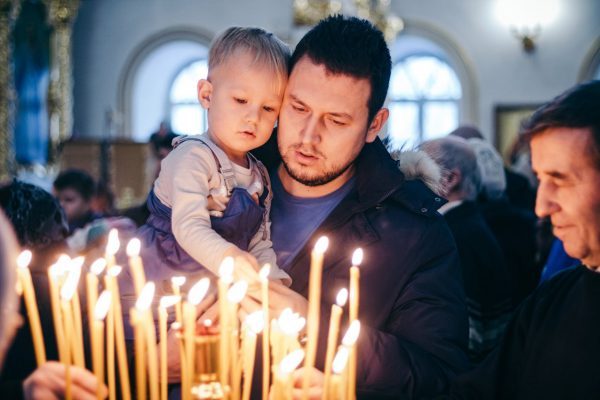I’ve heard people acknowledge that spiritual experiences are wonderful and, for that matter, undeniably real. They see the rituals of worship that grow from these experiences, however, as man-made and thus dispensable.
We may disbelieve the Biblical account of Moses receiving the Ten Words on Mount Sinai, for example, but we cannot deny the impact of their reception on the construction of the Jewish faith. We may deny the resurrection of Jesus, but we are surely unable to deny the growth of the church as a result of belief in this Resurrection. The Hebrew slaves of Egypt, who least expected to be rescued, found themselves free, if wandering in the desert. The disciples of Jesus, who least expected him to be raised from death, experienced him alive and personally drawing them onward in mission.
Experiences of wonder and awe do not automatically lead to worship, but it is equally true that without such profound experiences worship cannot arise.
We try to tame our experiences of wonder and corral them into a narrow frame of interpretation. Yes, there are aspects that yield to sociological, anthropological, or psychological explanation, but such categories neither contain them nor fully explain them. Every interpretation misses some aspects because the experiences are like facets of a diamond which, when turned, reveals new light and another brilliance. The problem of trying to communicate such experiences shows that they are mysteries.
We can talk about mysteries, but talking never exhausts their meaning. Mystery names an experience that can be expressed but not comprehended. Times of awe lead directly to worship and adoration. Moses stands before the bush that burns but is not consumed, and he is awestruck.
Awe is not a feeling. It is a clear mental and even physical sensation in the presence of mystery. In the fourth century, teachers of the church called the process of becoming a Christian through the rituals of baptism, anointing, and first communion at Pascha (Easter), “the awe-inspiring rites of initiation.”
Certainly the ritual constructions of religion are man-made – who else would make them? – but are they dispensable? We use rituals we don’t often acknowledge as such – handshakes, putting hand over heart at the national anthem, opening doors for others, kissing on the cheek, family gatherings at funerals and weddings. Ritual is protocol to get us past awkward moments. Religion is grounded in ritual, too, but it’s more than protocol.
The religious use of rituals intends to communicate the mystery they are based on. Through them, we who live today participate in the reality of those events that shaped the faith and, ultimately, the practices of a particular faith-tradition. For example, Pascha enables Christians to experience the resurrection of Christ in their own bodies and hearts at the present time.
We’re not out of the woods yet, however. If ritual arises to communicate mystery, how can it do so if mystery is essentially incommunicable? So we amplify or circumvent the words through symbol and song and story; we call for pageant and physical participation. We re-member the event in our bodies.
This is not memory as recall of facts locked in the past. “To remember” in the biblical sense means that a past event becomes present, with the fullness of its meaning, to our experience. Like the Exodus, the festival of freedom. Like the Eucharist, the feast of faith. These events surround our present moment and bring us renewed life. For that you need ritual; and faith-traditions are borne by ritual.

















